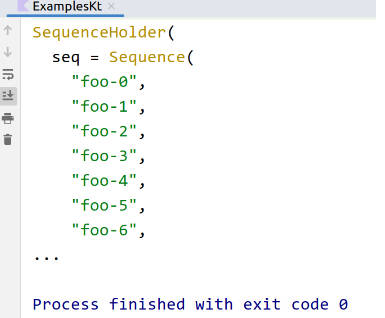macaroons4K 
A Kotlin library for Macaroons. The aim of this library is to provide an easy-to-use, yet versatile (e.g., support for structural caveats) library for developers.
NOTE: this library is a port of the following library: macaroons4J. Besides the translation, the code is exactly the same. Therefore, the following examples are also written in Java.
How to add this dependency to your project
Replace VERSION with a tag from the releases.
Maven
<repositories>
<repository>
<id>jitpack.io</id>
<url>https://jitpack.io</url>
</repository>
</repositories>
Also, add the following dependency:
<dependency>
<groupId>com.github.pvriel</groupId>
<artifactId>macaroons4K</artifactId>
<version>VERSION</version>
</dependency>
Gradle
allprojects {
repositories {
maven { url 'https://jitpack.io' }
}
}
Also, add the following dependency:
dependencies {
implementation 'com.github.pvriel:macaroons4K:VERSION'
}
Basic usage example
Working with Macaroons in general
String hintTargetLocation = "https://google.com";
byte[] macaroonIdentifier = UUID.randomUUID().toString().getBytes(StandardCharsets.UTF_8);
String macaroonSecret = "A secret, only known to the target location";
Macaroon macaroon = new SimpleMacaroon(macaroonSecret, macaroonIdentifier, hintTargetLocation);
VerificationContext context = new VerificationContext();
macaroon.verify(macaroonSecret, context); // No exceptions thrown.
Working with first-party caveats
byte[] firstPartyCaveatIdentifier = UUID.randomUUID().toString().getBytes(StandardCharsets.UTF_8);
// Create a custom FirstPartyCaveat subclass and define its verification process.
FirstPartyCaveat timeConstraint = new FirstPartyCaveat(firstPartyCaveatIdentifier) {
@Override
protected void verify(@NotNull Macaroon macaroon, @NotNull VerificationContext context) throws IllegalStateException {
/*
macaroon: the Macaroon instance that is being verified.
context: the context in which the caveat should hold.
*/
context.addRangeConstraint("time", Pair.of(5, 10));
}
};
macaroon.addCaveat(timeConstraint);
macaroon.verify(macaroonSecret, context); // No exceptions thrown.
context = new VerificationContext();
context.addRangeConstraint("time", Pair.of(11, 15));
/*
Exception thrown: context only valid in 'time' range 11 - 15, while the constraint is only valid between 5 - 10.
There is no overlapping between the two ranges.
*/
macaroon.verify(macaroonSecret, context);
Working with third-party caveats
String thirdPartyCaveatRootKey = "Another secret, shared with the third-party";
byte[] thirdPartyCaveatIdentifier = "user is Alice";
String hintDischargeLocation = "https://oauthprovider.com";
ThirdPartyCaveat thirdPartyCaveat = new ThirdPartyCaveat(thirdPartyCaveatRootKey, thirdPartyCaveatIdentifier, hintDischargeLocation);
macaroon.addCaveat(thirdPartyCaveat);
macaroon.verify(macaroonSecret, new VerificationContext()); // Exception thrown: no discharge Macaroon bound.
// You can add additional caveats to the discharge Macaroons, but we are not doing that here.
Macaroon dischargeMacaroon = new SimpleMacaroon(thirdPartyCaveatRootKey, thirdPartyCaveatIdentifier, hintDischargeLocation);
macaroon.bindMacaroonForRequest(dischargeMacaroon);
macaroon.verify(macaroonSecret, new VerificationContext()); // No exceptions thrown.
Contact
Found a bug, problem, … or do you have a question about this library? Do not hesitate to contact me as soon as possible!


